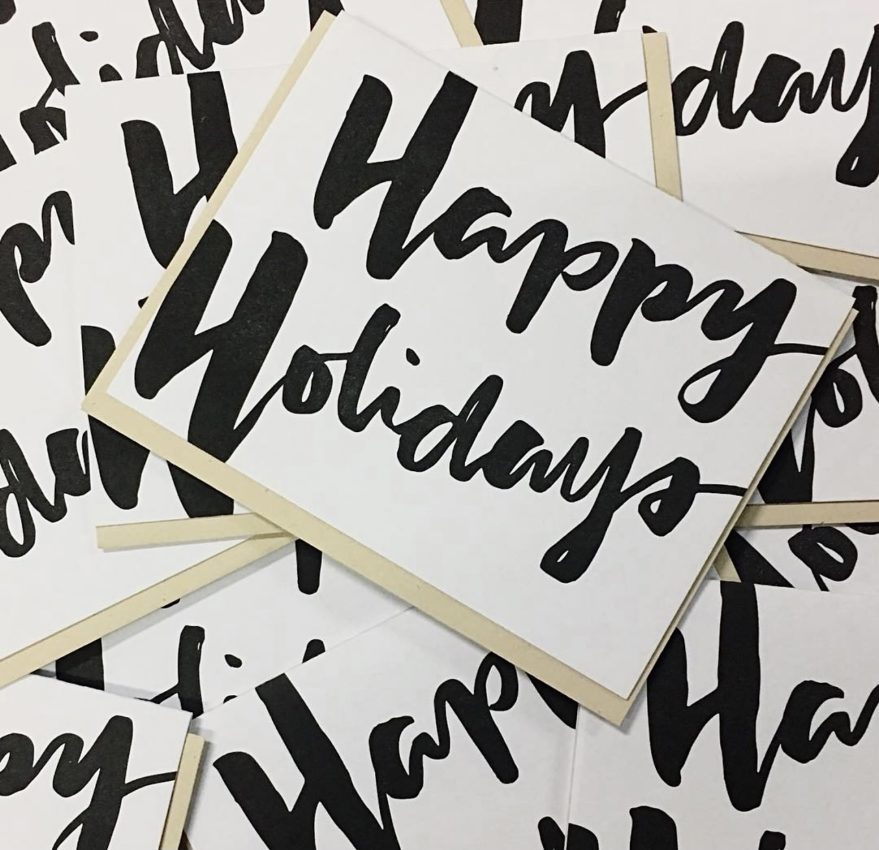
‘Tis the season of walking the aisles of a grocery store or driving home and knowing precisely what time it is. The lights are strung, Mariah Carey is singing and people are just nicer. It’s Christmas –– no, sorry –– the holiday season.
Don’t get me wrong, I adore it all.
In some respects, Christmas has slowly become an integral part of Canadian culture. I spent my elementary years enjoying the annual The Polar Express viewing, the songs and little gifts. Even then, the cold month of December emphasized the importance of charitability and keeping friends and family close.
However, the moment December begins, the flood of seasonal merchandise and sales follow. The commercialization of Christmas has diverged the holiday from its original religious intent, instead promoting culture, whimsy and figures like Santa Claus and his elves. Furthermore, discourse surrounding seasonal well-wishes has shifted behaviours to appeal to those who do not celebrate Christmas.
Debates over seasonal greetings are the annual hot topic of conversation. The urgency for inclusivity during the holidays took the reins many years ago, joined by diversity training and infographics, but caught considerable attention with Starbucks coffee cup outrage a few years ago.
In 2015, when Starbucks released new merchandise of simple seasonal colours to appeal to its increasingly diverse customer base, the so-called “War on Christmas” exploded. The decision to halt the Christmas themes received criticism from customers, claiming that this change was unjustly fueled by liberal antagonism and deepened the fear of the growing, diverse world.
In Canada, we’ve now nestled ourselves comfortably within the safe and all-inclusive phrase of “Happy Holidays,” but I don’t think it’s doing what we think it is. In trying to be inclusive of all beliefs and claiming to acknowledge our differences, we’re taking the lazy route out and blurring our diversity.
If we were truly celebrating our differences, we would be wishing everyone a happy holiday all year round, spreading the holiday cheer in the spring for Nowruz, and tracking the lunar and solar cycles for Ramadan and Yom Kippur.
But we don’t.
I believe that if we were truly acknowledging our differences, we would know what those differences are. The intentions behind “Happy Holidays” are sweet, but they’re unproductive and misguided.
Like the “I don’t see colour” conversations I’ve had with acquaintances about race, using “Happy Holidays” draws similar dismissive parallels. When people say they don’t see colour, it erases the experiences of people of colour and dilutes the importance that those experiences hold — including my own. These personal distinctions shape the course of our lives, the way in which we present ourselves and how we see the world. It would be an injustice to clump ourselves together in the same way that “Happy Holidays” clumps us all together.
Don’t get me wrong, I will still continue using the phrase “Happy Holidays” — it’s safe, and it gets the job done. Although we can’t dive headfirst into our personal belief systems with every meaningless interaction with our neighbours, it is important to understand what this dialogue means. After all, we all know that when we say “Happy Holidays,” most of us are only referring to one holiday — Christmas.
So where do we go from here?
This issue goes beyond exchanged seasonal pleasantries and seeps into the little cracks of our lives. The marketability of the holiday season is the main driver of this discourse and dictates much of the conversation. But there have been campaigns by corporations in addressing social concerns, so we know these conversations can move upward.
And these conversations must begin with our interactions with each other.
Knowing that we are different is the first step. If you wish to be acknowledged for your differences, acknowledge others for theirs, too. Ask questions, read, learn and understand the way we address our differences.
Recognize that in our efforts to be inclusive, we sometimes don’t bother knowing what those distinctions are. Are we being mindful, or just plain lazy?
In the meantime, enjoy the pretty lights, warm drinks and the same song over and over and over again.
Merry Christmas and Happy Holidays.
—
This op-ed was written by a University of Saskatchewan undergraduate student and reflects the views and opinions of the writer. If you would like to write a reply, please email opinions@thesheaf.com. Rayyann Haque is a fourth-year undergraduate student studying Archaeology and Anthropology, and is a Staff Writer at The Sheaf Publishing Society.
Photo: @and_hereweare Via Instagram
Leave a Reply